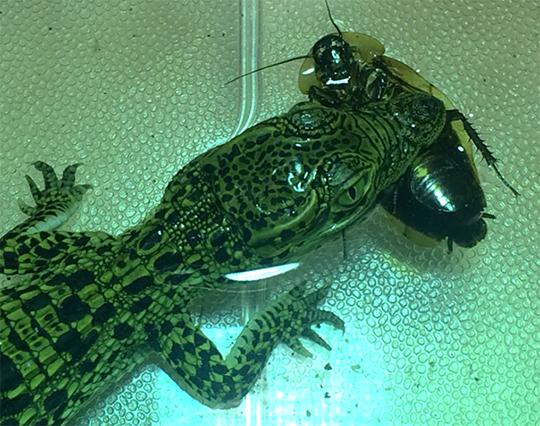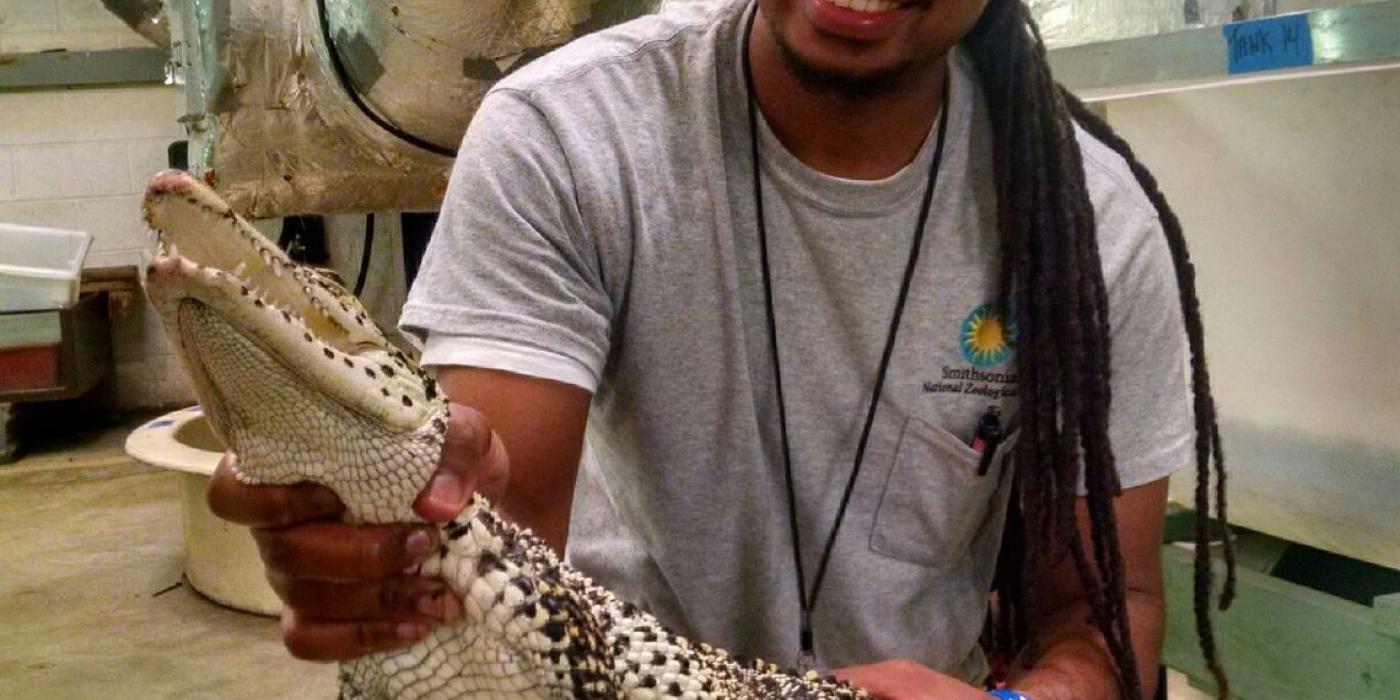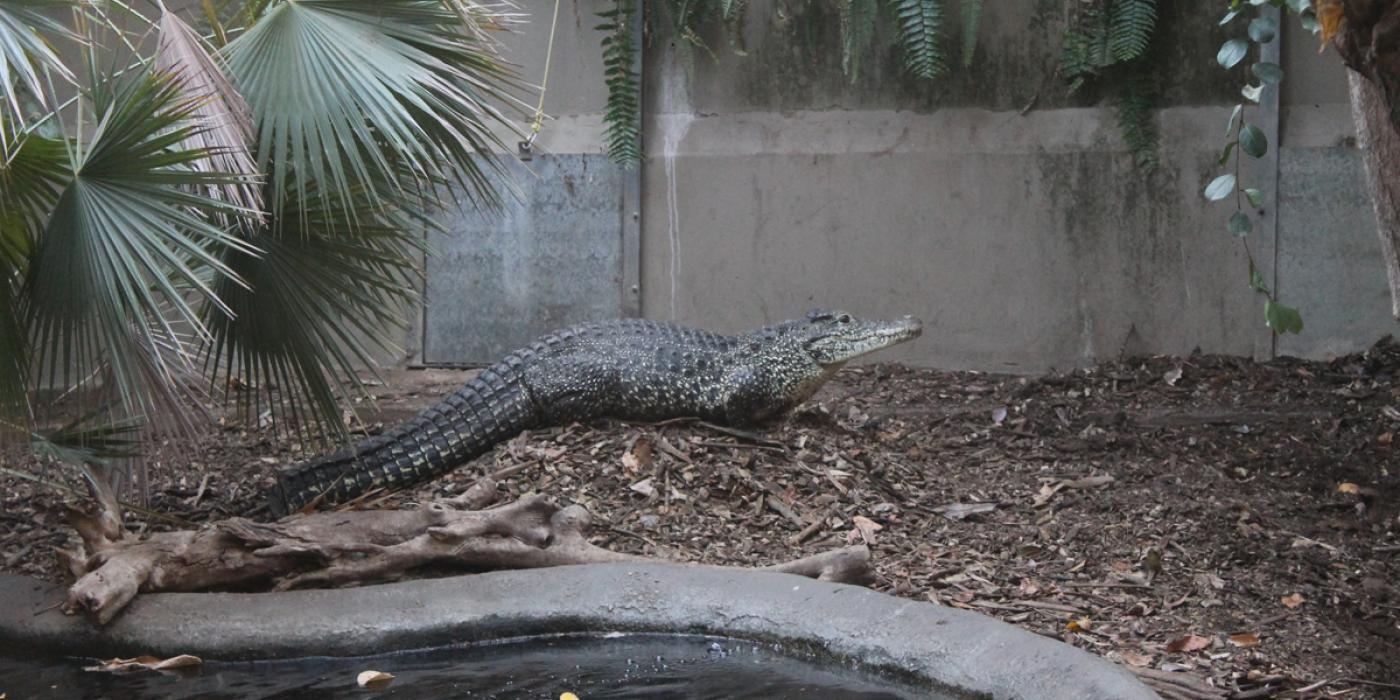The Croc and Gator Blog Sep 01, 2015
By Lauren Augustine
Our baby Cuban crocodiles are one month old! They are feisty little additions to the Reptile Discovery Center. They eat a variety of food items, because a nutritionally balanced diet is essential for the long term health of our hatchlings. This the most susceptible stage of their lives, so it's important to make sure they are healthy. In the wild juvenile crocodiles will attack small prey at the water's edge, surface and/or under the water. Typical prey includes insects, crustaceans, small fish, amphibians and other small animals (depending upon the animal's geographic range). At RDC we do our best to mimic the diversity of prey available in the wild to our crocodilians in captivity. We are currently offering our baby crocodiles upwards of six food items including roaches, crickets, crayfish, smelt and earthworms, to name a few. We also supplement our crocodiles' diet with a zoo-made artificial diet called crocodile biscuits. The biscuits are designed to offer the appropriate nutrition without excess fat.
Related Species:



